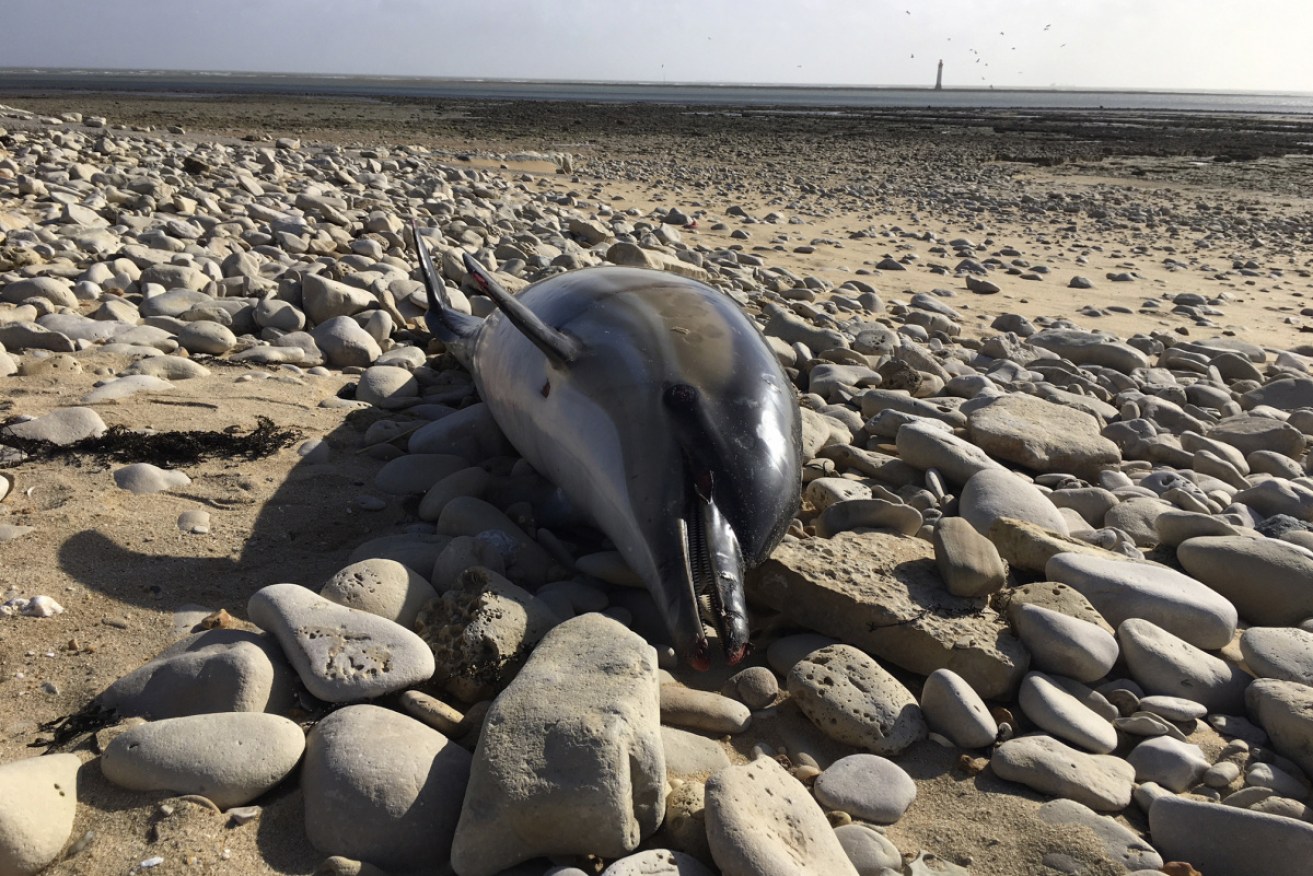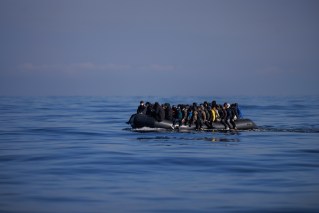Mutilated dolphin corpses wash up on French beaches in record numbers


One dead dolphin among the record number that have washed up on French beaches this year. Photo: AAP
More than 1000 mutilated dolphin corpses have washed up on France’s Atlantic coast beaches this year, prompting widespread concern and calls to monitor industrial fishing.
The dolphins’ bodies have fractures, snapped tails, broken flippers and deep wounds from nets cutting into their flesh, and their fins have been cut off.
But what has most shocked researchers is not just the brutality of the deaths of these highly intelligent mammals, but also the numbers involved – a record 1100 since January.
Animal rights group Sea Shepherd, which is campaigning about the deaths, says trawlers fishing for sea bass in the area kill up to 10,000 dolphins a year. That’s more than those slaughtered in the combined annual catches of the Faroe Islands and Taiji, in Japan, which both cause mass public outrage.
The mass dolphin deaths have been widely blamed on aggressive industrial fishing and have prompted France’s ecology minister to launch a national plan to protect them.
“There’s never been a number this high,” said Willy Daubin, a member of La Rochelle University’s National Centre for Scientific Research.
“Already in three months, we have beaten last year’s record, which was up from 2017 – and even that was the highest in 40 years.”
Mr Daubin said 90 per cent of the fatalities were due to dolphins accidentally getting captured in industrial nets. But the reason for the extra spike in 2019 remained a mystery.
“What fishing machinery or equipment is behind all these deaths?” he said.
The research centre’s autopsies on the dolphins has found extreme levels of mutilation.
Activists say a common practice is for fishermen to cut body parts off suffocated dolphins after they are pulled up on the nets, to save the net itself.
The spike in dolphin casualties also prompted French Ecology Minister Francois de Rugy to head to La Rochelle to try to find ways to lower the numbers.
He is under pressure not least because of President Emmanuel Macron’s pro-ecology stance and oft-quoted slogan to “Make the planet great again”.
Mr de Rugy’s ideas include bolstering research into existing acoustic repellent devices in place in 26 two-vessel trawlers off the Bay of Biscay, an industrial fishing hub in the Atlantic Ocean. When activated, the devices send unpleasant signals to nearby dolphins that cause them to swim away.
But Sea Shepherd said those measures did not go far enough, describing the plan as “useless.”
Sea Shepherd claims many of the trawlers it watches in the region don’t activate the repellent devices because crews fear they will scare off valuable fish as well. Operators turn them on only if they are checked by an “onboard observer”, Sea Shepherd says.
It also said that more devices was no long-term solution for the dolphins because they risked making the ocean an uninhabitable drum of noise pollution.
“The government needs to take responsibility and act – especially Macron, who said he wanted to protect ecology,” Sea Shepherd France’s president, Lamya Essemlali, said.
She pointed to scientists who predict current rates of fishing will likely drive the dolphin population to extinction.
She suggested that aggressive hake fishing – given the green light three years ago after long ban – was a major factor. The spike in dolphin deaths also began three years ago.
-with AAP








